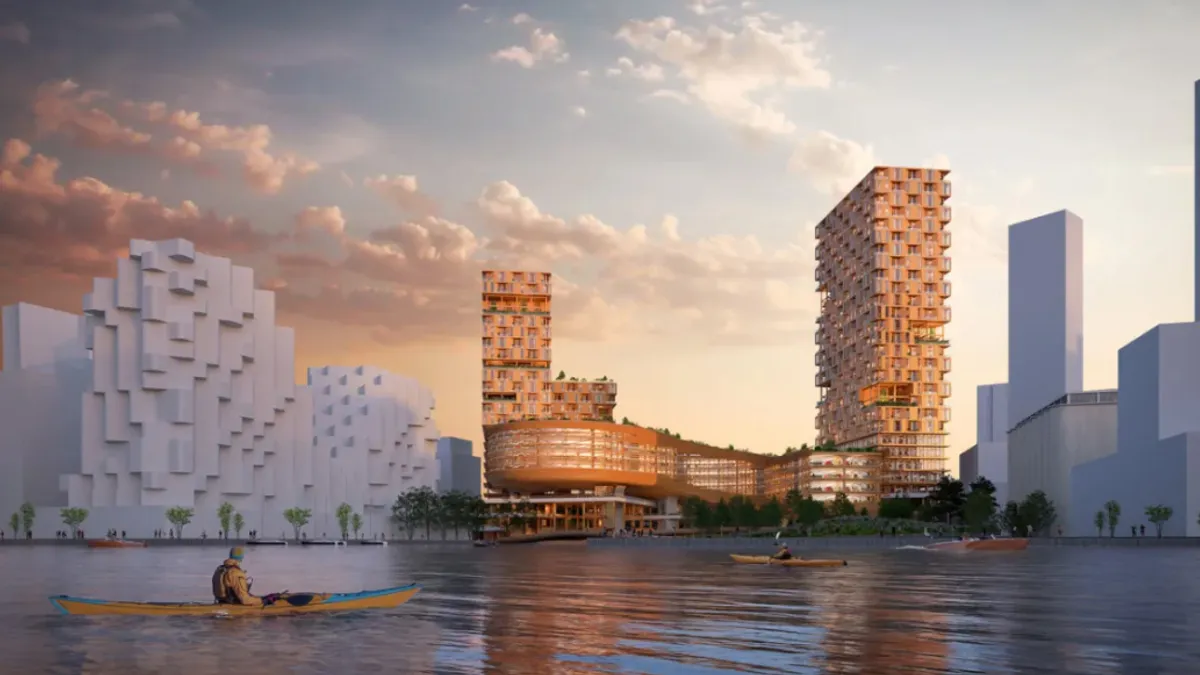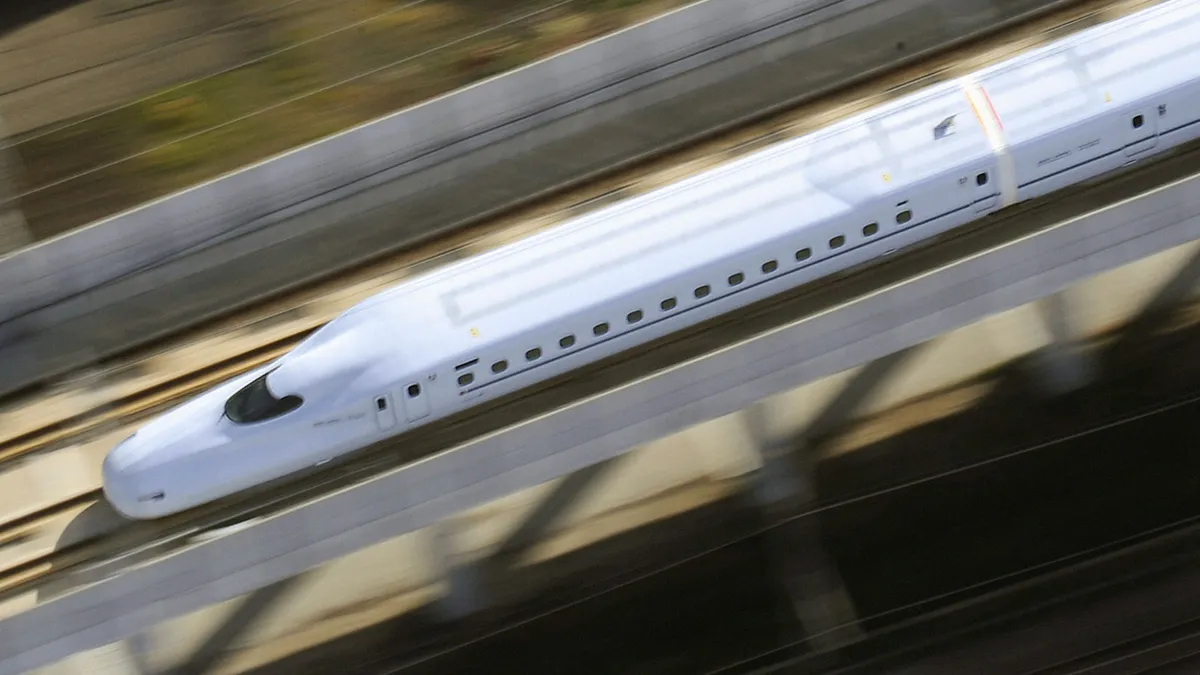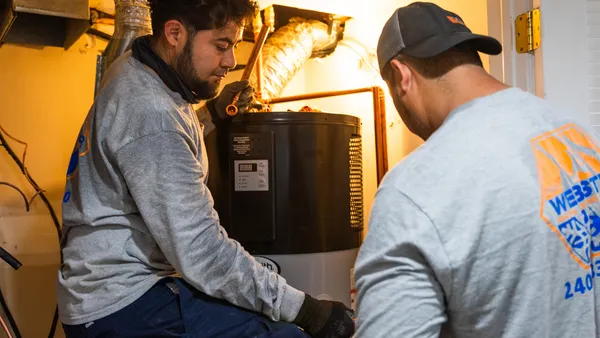Dive Brief:
- Preliminary plans for Sidewalk Labs’ planned smart city development in Toronto show it will be made of timber and in modular pieces to allow infrastructure and building materials to be swapped out as needed, according to Fast Company. The plans were publicly released by parent company Alphabet after being leaked to the Toronto Star.
- Alphabet, which is also Google's parent company, also appears to be looking past the planned 12-acre Quayside development, with documents showing ambitions to develop 350 acres of waterfront space as an innovation district. To upgrade utilities, Alphabet proposes to loan the city the up-front cost, with repayments backed by increased property taxes.
- In addition, innovative infrastructure is being designed to handle cold weather, including heated bike lanes and clear tarp tents that grow out of buildings in rain.
Dive Insight:
The plans are still subject to change ahead of Quayside’s expected 2020 groundbreaking, but show just how futuristic Alphabet plans to be with its smart city test area. Alphabet has previously trickled out some details about the mixed-use development, including its plans to have 40% of its housing be below market rate, with enough total housing to accommodate 5,000 people. The entire development is also being designed to prioritize walking and biking, with covered walkways and bike paths along major roadways.
Among the other new details Sidewalk Labs has announced is a network of underground tunnels to handle deliveries and waste pickup, keeping those congestion-creating tasks off of streets. The modular design would build on work Sidewalk Labs has done on “dynamic streets,” pavement done in pieces that can be reconfigured and adapted based on need (expanding a roadway during rush hour, for example).
The use of timber — which has caught on as a building material in Canada and elsewhere — is meant to help reduce the project’s total greenhouse gas emissions (Alphabet has indicated that a Toronto-based company could provide the timber). Additionally, the development will run on solar power and geothermal heat, to further reduce the environmental impact, while a “smart waste user interface” will lead to more composting and recycling.
The futuristic design and ideas are sure to excite potential residents and observers, but the project still faces several challenges. Concerns about data privacy and storage have dogged the development from the start, leading to Sidewalk Labs promising to incorporate an “independent, civic data trust” run by a third party. The planned expansion beyond Quayside could invite even more questions about how Sidewalk Labs will protect data collected from Toronto residents at other smart cities developments.










